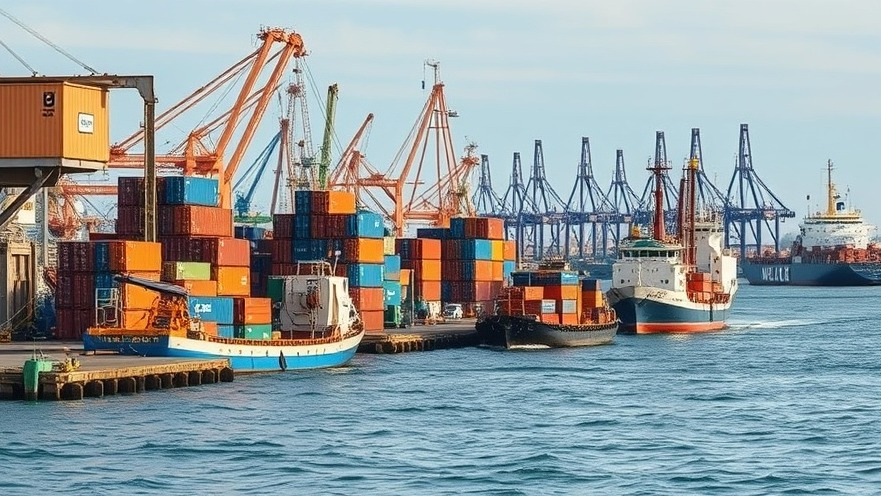
Tariffs: An Ongoing Concern for Franchisors
The recent statements from former President Donald Trump, indicating that he is "not looking" at a pause in tariffs amidst trade negotiations, have sent ripples through the global economic landscape. As franchisors seeking operational excellence in a robust marketplace, understanding these developments is crucial to maintaining brand consistency and enhancing franchisee performance. The timing of these tariffs could significantly impact the supply chain and costs associated with franchising.
The Impact on Supply Chains
Tariffs can disrupt the smooth flow of goods, causing delays and increased costs for franchisees who rely on specific suppliers. Given that many franchises operate with a standardized product offering, interruptions in supply chains can lead to inconsistency in the customer experience. Businesses may need to source alternatives, increasing operational costs and affecting brand loyalty.
Trade Negotiations: What’s at Stake?
Current trade tensions, especially with China, underscore how negotiations can influence tariff policies. The talks are not just a matter of politics; they directly affect the operational costs for franchisors. For example, if tariffs on imported materials rise, franchise owners must weigh whether to absorb the costs or pass them on to consumers, potentially compromising competitive pricing.
Future Predictions: Navigating the Trade Landscape
Looking ahead, predicting the trajectory of tariffs and trade negotiations is essential for franchisors. Experts suggest that the looming uncertainty may require businesses to diversify their supplier base to mitigate risks. This is where technology plays a pivotal role — advanced analytics can help assess alternative suppliers and optimize inventory management to keep operations smooth, despite external pressures.
Counterarguments: The Case for Strategic Flexibility
While tariffs are often seen as reductive, some experts argue that they can encourage domestic manufacturing and innovation. Franchisors might need to consider a flexible approach, adapting operations to take advantage of domestic opportunities while navigating international challenges. This perspective can help foster resilience, allowing franchises to thrive regardless of external fiscal pressures.
Actionable Insights for Franchisors
Staying informed about tariff policies is essential for making strategic decisions. Here are a few tips for franchisors and franchisees:
Regularly assess your supply chain for vulnerabilities and proactively seek out alternative suppliers.
Evaluate the feasibility of domestic sourcing options that might alleviate tariff impacts.
Utilize technology and data analytics to track supply chain metrics and adjust procurement strategies as necessary.
In conclusion, navigating the impact of tariffs will require franchisors to stay vigilant and adaptable. By leveraging technology and staying informed about the trade landscape, businesses can make decisions that enhance performance and maintain brand consistency, despite external pressures.
**Call to Action:** For franchisors aiming to reinforce their strategies amid these shifting global dynamics, consider re-evaluating your supply chain processes. Engaging with technology to innovate operational tactics can provide a competitive edge and ensure you remain resilient in uncertain times.
 Add Row
Add Row  Add
Add 




Write A Comment